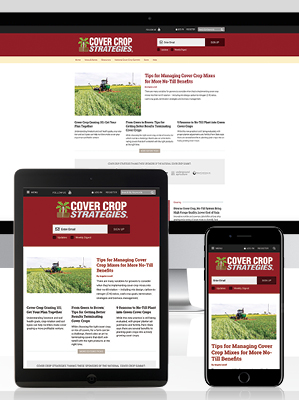Fargo, N.D. – A consortium of food and beverage companies announced Nov. 29 a commitment to expand regenerative agriculture across the U.S. through the formation of a robust network of independent farmer advisory services. Enabled by the collective investment of PepsiCo, King Arthur Baking, General Mills, Anheuser-Busch and Unilever, along with $1.6 million in grant funding from the Walmart Foundation to the Sustainable Food Lab, the Trusted Advisor Partnership aims to amplify the adoption of profitable stewardship practices.
The partnership will focus initially on North Dakota, where wind and water erosion have stripped the state of 50% of its topsoil in some areas, resulting in annual productivity losses numbering in the tens of millions of dollars over the past 50 years.
“With a wide variety of commodities grown within our borders and a strong existing base of Certified Crop Advisors (CCAs), North Dakota is the ideal region to demonstrate the critical importance of connecting farmers with independent information delivered by trusted advisors – information on the conservation ag practices that build not only better soil but a better bottom line for our state and tribal producers," says Dr. Abbey Wick, North Dakota State University (NDSU) Associate Professor, Extension Soil Health Specialist, and co-lead for the project.
In concert with colleagues CCAs Jason Hanson (dba Rock and Roll Agronomy) and Dr. Lee Briese (Centrol Ag Consulting), monitoring and evaluation consultant Jean Haley of Haley Consulting Services, and NDSU professor Dr. Jason Harmon, Wick is creating and delivering an interactive practicum that addresses a wide range of topics, including reduced tillage, cover cropping and integrated pest management. Serving as project administrator, the Sustainable Food Lab, a 501c3 that specializes in designing place-based ag sustainability strategy and farmer engagement programs, will simultaneously work with company partners to develop a set of financial incentives that flows through the program and further extends regenerative agronomy across thousands of acres.
“We’re excited to be taking the wraps off this cross-sector effort, especially on the heels of an unprecedented investment in our nation’s ag economy from the USDA Partnerships for Climate-Smart Commodities fund. Dollars alone are not enough; there is, and will continue to be, a pressing need for more agronomic talent to de-risk the transition to regenerative. By syncing farmers with unbiased technical support and customized supply chain programs, we believe this project has the potential to accelerate the momentum around soil health and whole-of-farm stewardship in the U.S.,” adds Elizabeth Reaves, senior director at the Sustainable Food Lab.
This investment in leading-edge agronomy underscores the pivotal role of trusted advisors, like CCAs, in helping farmers navigate complex management decisions and challenging climatic conditions.
To date, the North Dakota Trusted Advisor Partnership has hosted workshops and distributed preliminary surveys to gauge baseline practice adoption. There are plans to test and iterate on training modules in upcoming forums in North Dakota, such as the DIRT Workshop and Agronomy on Ice. By the end of 2025, the project intends to reach 300,000 acres with its site-specific, logistics-based soil health training. An ultimate outcome will be a plug-and-play model for technical assistance that is translatable to other agricultural geographies and contexts, including tribal communities. In addition to expanding the number of participating CCAs from 10 to 30 by 2024, the initiative is actively looking to bring other contributors and fiscal supporters into the fold, with several other collaborators set to join by year-end.




Post a comment
Report Abusive Comment